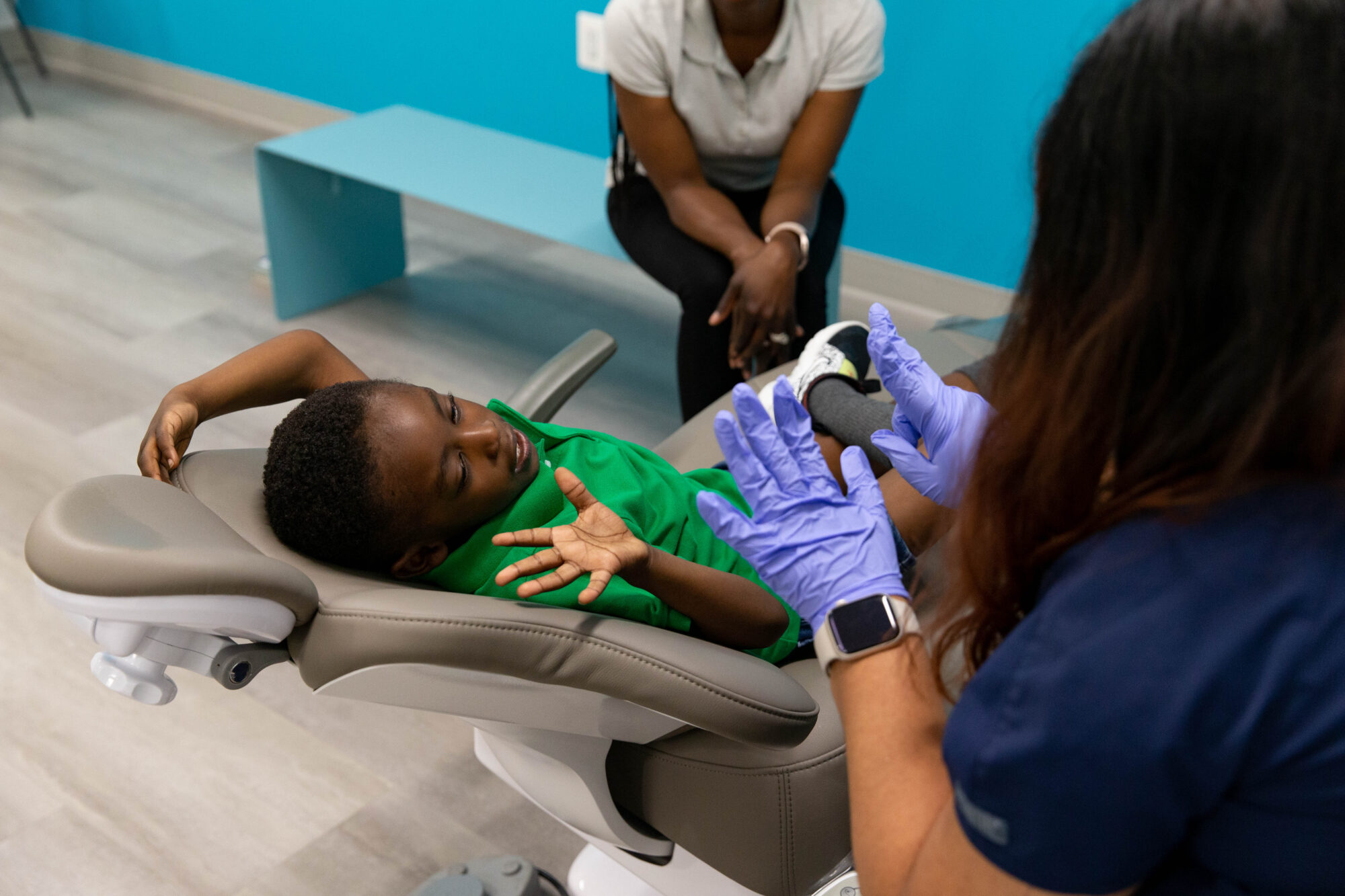Keeping Your Baby's
Mouth Healthy
Congratulations on the arrival of your baby! Are you prepared for their first tooth? Follow these guidelines, and your little one will be on the way to a lifetime of healthy smiles!
AAPD Recommendations for Brushing
Parents should use a tiny smear of fluoride toothpaste to brush baby teeth twice daily as soon as they erupt and a soft, age-appropriate sized toothbrush. Once children are three to six years old, increase the amount to a pea-size dollop.
Caring for Gums
Even before your baby's first tooth appears, the gums can benefit from your careful attention. After feedings, wrap one finger with a clean, damp washcloth or gauze and gently rub it across your baby's gum tissue.
This practice clears your little one's mouth of food fragments and builds good daily oral care habits.
Baby's First Tooth
When that first tooth erupts, it's time to upgrade to a baby toothbrush. There are usually two options: a long-handled toothbrush you and your baby can hold together and a finger-puppet-like brush that fits over the tip of your pointer finger. In each case, the bristles are soft and few.
At this stage, toothpaste isn't necessary; just dip the brush in water before brushing. If your little one doesn't react well to the introduction of a toothbrush, don't give up. Switch back to a damp washcloth for a few months and try the toothbrush again later.
During the teething process, your child will want to chew on just about anything, and a baby toothbrush with a teether can become a favorite toy during this period.
Setting a Good Example
As part of the natural learning process, little ones are expert mimics, and you can take advantage of this talent. Brush and floss daily while your child is watching, and they will learn the importance of your good habits at an early age.
As soon as your child shows interest, offer a toothbrush of their own and encourage your toddler to "brush" with you. Toothbrushes with chunky, short handles are easy to grip for tiny hands. Most children don't have the dexterity to thoroughly clean their teeth until they're about six or seven, so you'll have to do that part of the job.
Try different tactics to make brushing fun: flavored toothpaste, a toothbrush with a favorite character, or singing songs about brushing. The primary goal is to instill healthy oral habits early to prepare your child for a lifetime of healthy, cavity-free teeth!
Avoiding Cavities
Don't give your baby any sweetened liquids such as flavored drinks, fruit juice, or soda. Also, don't let your baby go to bed with a bottle; sugary liquids in prolonged contact with teeth are a guarantee for early-childhood decay, also called baby-bottle caries.
First Visit to the Dentist
Dr. JC recommends bringing your baby in for a visit within six months of the first tooth's eruption – usually around their first birthday. Since decay can occur in even the smallest of teeth, the earlier your baby visits us, the more likely they are to avoid problems.
We'll look for signs of early problems with your baby's oral heath and check in about the best way to care for your little one's teeth. Remember that preparing for each dental visit with a positive attitude goes a long way toward making your child comfortable with regular checkups.



